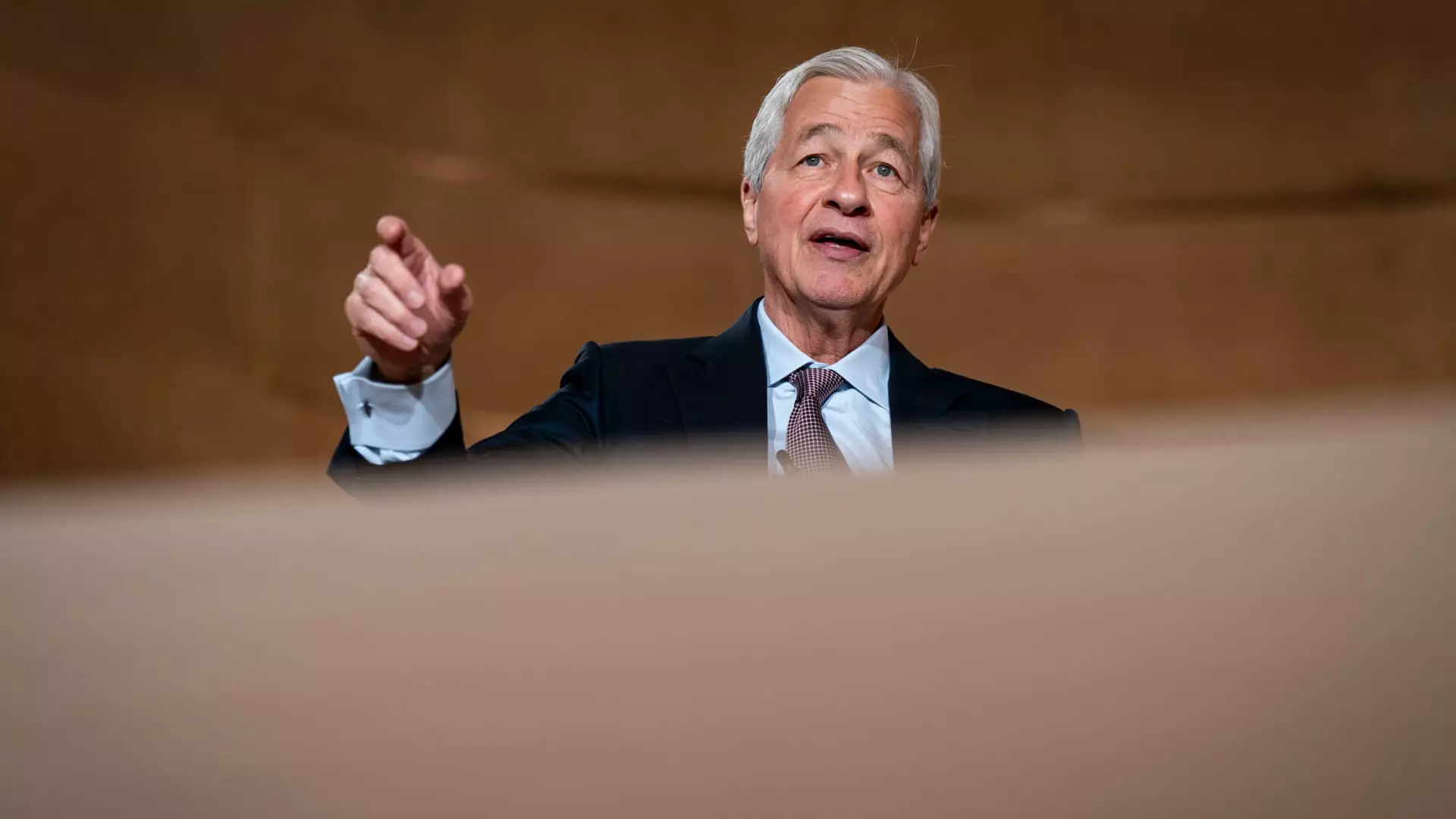In an era where markets seem to be defined by transient gains and relentless optimism, the voice of caution echoes louder than ever. JPMorgan Chase’s CEO, Jamie Dimon, recently brought this looming threat to light, emphasizing the disconnect between euphoric stock market recoveries and the stark realities of America’s economic landscape. Dimon pointedly articulated concerns regarding record-setting U.S. deficits, increasing tariffs, and escalating international conflicts that are causing significant upheaval. His remarks serve as a crucial reminder: amidst the fleeting highs of stocks and corporate profits, we must not ignore the undercurrents of instability.
The continuation of the upward trajectory in stock market valuations suggests a collective denial of deeper economic threats. Hyperfocus on short-term gains can easily blind investors and analysts to systemic issues, leaving them vulnerable to abrupt market corrections. Dimon’s assertion that the prevailing sense of economic security is misplaced is not merely alarmist rhetoric; rather, it is an urgent call to scrutinize the broader implications of financial indifference in a world teetering on the edge of a recession marked by inflation, colloquially referred to as stagflation.
The Risks of Complacency
Dimon’s insights resonate amidst a backdrop of worrisome indicators, particularly the recent downgrade of the U.S. credit rating by Moody’s. This downgrade reflects the pressing concern over the government’s ballooning debt, a problem that many in the finance sector have downplayed. Investors, emboldened by a temporary market bounce-back, may be lulled into believing that the fundamentals simply don’t matter anymore. Yet, such complacency could set the stage for dire economic consequences. Markets often operate under the illusion that they are divorced from reality, but economic cycles do not bend to optimism — they are governed by tangible fiscal policies and geopolitical realities.
The travails of trade tensions under President Trump’s administration have exacerbated this disconnect, as evidenced by Dimon’s predictions about faltering earnings projections for S&P 500 companies. The statistical fables often floated by analysts about inevitable growth have to be challenged by the harsh light of economic actuality. When Dimon suggests that earnings growth may flatline, he is not just shaping a narrative of caution; he is urging us to reassess our expectations about a robust economic future.
The Need for Pragmatism
Moreover, the corporate environment, according to Dimon’s executives, reflects hesitation among major players regarding mergers, acquisitions, and larger financial commitments. This “wait-and-see” mentality is symptomatic of a broader crisis of confidence, where businesses are unsure about navigating the turbulent waters created by political posturing and uncertain fiscal policies. Leaders must cultivate a culture of pragmatism rather than one of reckless optimism and complacency.
For the average investor or individual, the ramifications of such a landscape could be profound. When behemoths like JPMorgan start expressing concerns, it is often the harbinger of more significant market adjustments. Just as the tides can shift unexpectedly, so too can public sentiment and economic indicators. The potential for stagnation should push both private and institutional investors to reevaluate their strategies, risk assessments, and long-term plans in the face of reality.
Charting a Way Forward
What can be done in this climate of uncertainty? For one, the demand for transparent dialogue about real economic risks cannot be overstated. Investors and policymakers alike must confront uncomfortable truths and engage with the complexities of the global economy rather than gloss over them in pursuit of the next market high. Ignoring these dynamics is no longer an option; it is a recipe for disaster.
Dimon’s candid commentary offers an opportunity for reflection and recalibration in financial practices. His position, combined with the insights from his executive team, underscores a crucial need for vigilance in the face of potential economic headwinds. Only through comprehensive risk assessment, open dialogue, and adopting a long-term strategic viewpoint can we chart a path through the fog of economic uncertainty.
As we venture further into an unpredictable future, it remains imperative that we temper our optimism with realism, ready ourselves for the challenges ahead, and, above all, resist the seductive sirens of complacency. The stakes are high, and a responsible approach to our economic future demands nothing less.

